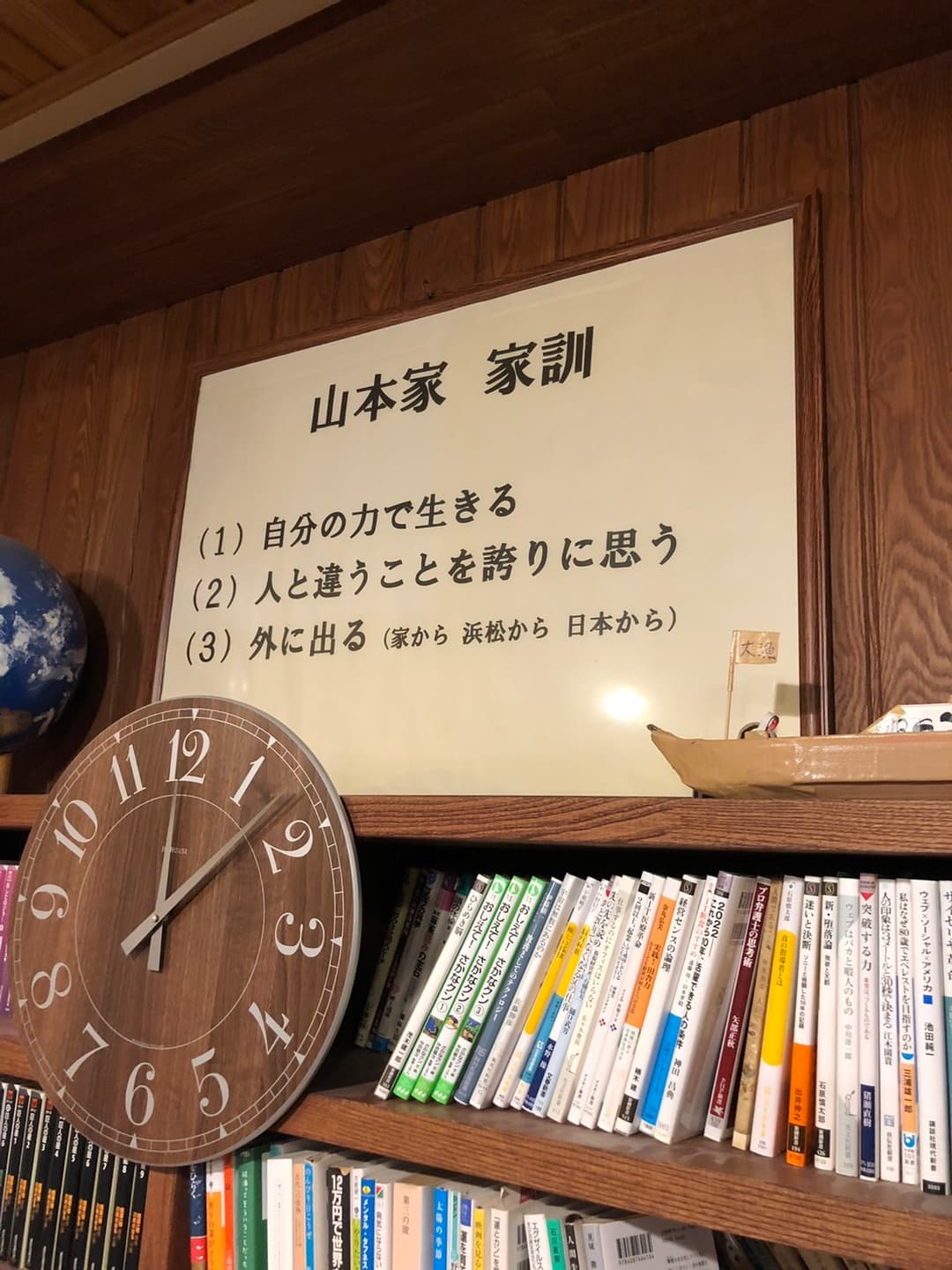Chapter 03
Lay it flat, no rails. Yamamoto style
Yamamoto's core values are "independence" and "desire for experience," and as I spoke to him about his company and how he came to start his own business, I noticed that he has a consistent stance on how he deals with people and things. In this chapter, I'd like to share some of Yamamoto's style.
Flat perspective and relationships
Among Yamamoto's styles, what I felt was particularly distinctive was his "flatness = fairness" towards others. Since managers and employees have very different ideas about the scope of responsibility and money, there is probably a considerable gap between them. However, Yamamoto himself does not feel much of a wall between himself and his employees. When I talk to Yamamoto, he says things like "I can't do this" or "That person is amazing because they can do this but I can't," regardless of the other person's age or position. I felt that it is because he looks inside himself and accepts himself as he is that he has the confidence to be honest and can face others on an equal footing.
He also often talked about his family in the interview, and I was very impressed by the respect he showed for his children. We often hear that to parents, children are children no matter how old they are, but when he said of his children, who are in junior high school to college, "Unlike me, my son (daughter) is good at these things, they are amazing," he said with a look of respect rather than admiration. When I told him, "You are not only level-headed in your dealings with employees, but also with your children," he replied, "Parents and children are related by blood, but their souls are individual and unique. So it's natural that children have things that their parents don't have, and I think it's healthier for the relationship to be one that sees them as equals." I thought that he had a unique set of values.
People tend to judge others based on attributes such as age, gender, academic background, and job title, but this fundamental belief makes us realize that we can treat everyone equally. Treating people as equals conveys to them that we recognize them more than words can. In relationships where positions can easily become biased, such as between a president and employee, a boss and a subordinate, a teacher and a student, or a parent and a child, I felt that it was very meaningful for a leader to show this kind of attitude.
The perspective of lines in the "Yamamoto Family Future Timeline"
One of the stories that cannot be left out when talking about "this kind of person Yamamoto-san is!" is the "Yamamoto Family Future Timeline." On the vertical axis are age and annual income, and on the horizontal axis are the names of all of his family members, including his own and his wife's parents. In the past, his career history is written, and in the future, his plans for the future, including his goals and what he wants to achieve, are written.

The Yamamoto family's future timeline hanging in the living room of their home

Two steps forward and one step up is just right. Yamamoto-san likes this straight line that keeps going up forever, even if it's just a little at a time.
Children are conscious of their parents' backs, so by showing them the footprints, they will be able to make some kind of decision when the time comes. It was also created with the idea that declaring what my husband thinks about the future would provide peace of mind for the whole family, so it is posted on the wall of the living room where the family gathers and is updated from time to time. I think that we often think of past events and future prospects in terms of points such as high school student, age x, etc., but it is interesting that it is expressed in a connected form as a timeline, and summarized so that the whole life can be seen at a glance. I feel that there are few opportunities to know what my parents did when they were the same age as me, or what they think about their future, so it is reassuring to have a senior in life showing me their back.
The company's perspective on lines can also be seen in the relationships surrounding it and in its products. It goes without saying that there are many employees with long tenures, but I was surprised to learn that there are many partners (they are called partners within the company, not outsourced) who have been with the company for even longer than the employees. I also think that it is rare in this industry that the company does not ignore its customers in the early days of the company's founding, but continues to follow up with them regardless of profitability. "I'm confident in my ability to respond quickly, but I prefer to build things up from a long-term perspective," he said, and I felt that one of Yamamoto's styles is that he values long-lasting relationships with both people and things.
Yamamoto also lists "y=1/2x" as the company's ideal growth line. This is because he wants to continue climbing forever in a gradual and stable straight line, rather than accelerating growth like y=x2.
The basis of independence is mind, reason and body
Before talking about the third style, I would like to briefly consider "independence," which Yamamoto places great importance on as a value. Although "independence" can be said in a few words, there are many aspects of independence, but Yamamoto's idea of "independence" is "independence in three aspects: mind, reason, and body." "Mind, reason, and body" respectively mean spirit, brain, and body, and are a coined word that is an arrangement of the phrase "mind, technique, and body," which is often used in martial arts. "Mind" refers to the tenacious mental strength that does not break no matter what and the tolerance to be considerate of others. "Ri" refers to the wisdom and ability to earn money necessary to achieve economic independence. "Body" refers to the self-immunity and basic physical strength required to live without relying on external sources such as doctors and medicine.
I'll show you my back, but I won't lay down the rails
Yamamoto wants his employees and children to become independent both physically and psychologically, and he has his own beliefs about how to foster independence. That is, he thoroughly follows the principle of "not telling them directly, not managing them, and not forcing them." For example, he does not tell his children to "read" the bookshelf called "Dad's Recommended Corner" mentioned in the previous chapter.

Yamamoto Family Motto It seems that this is a family motto that Mr. Yamamoto made up himself (laughs). The root of what he tells his employees and his children is the same.
This stance of "don't say it directly. provide options" is also influenced by the realization that "I'm not really suited to teaching directly" when he worked as a tennis coach in the past. Also, I think that it is because of his own experiences in his twenties (a career that was not built in the typical way, but one that he spun by facing himself) that he realizes the importance of moving forward on his own will, rather than following a set path.
Next